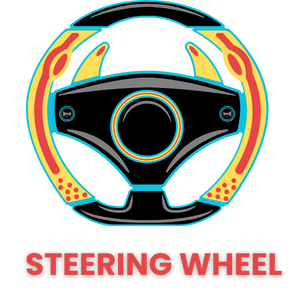High Speed Vibration in the steering wheel can be a troubling issue for many drivers. These Vibration not only affect the comfort of the ride but can also indicate underlying problems that might compromise vehicle safety. Addressing High Speed steering wheel Vibration promptly is crucial to ensure both a smooth driving experience and the longevity of your vehicle.
In this comprehensive guide, we will explore the causes, diagnosis, solutions, and prevention of steering wheel Vibration, offering expert opinions and real-life case studies along the way.
Causes of High Speed Vibration in Steering Wheel
Tire-Related Issues
- Uneven Tire Wear: Uneven tire wear can cause High Speed Vibration in the steering wheel. This issue arises from poor alignment, incorrect tire pressure, or worn suspension components.
- Tire Balancing Problems: Incorrect tire balancing can cause the steering wheel to shake at higher speeds. Regular tire balancing ensures a smooth ride.
- Incorrect Tire Pressure: Under-inflated or over-inflated tires can cause uneven wear and imbalance, leading to Vibration. Regularly checking and adjusting tire pressure can prevent these issues.
Wheel and Suspension Problems
- Wheel Alignment Issues: Misaligned Wheel can cause uneven tire wear and High Speed steering wheel Vibration. Regular alignment checks help prevent this problem.
- Worn Out or Damaged Suspension Components: Worn suspension components like shocks, struts, or bushings can cause Vibration. Regular inspections and replacements are necessary for a smooth drive.
- Bent or Damaged Wheel: Bent or damaged Wheel can cause significant Vibration. Inspecting and repairing or replacing damaged Wheel is essential.
Brake System Faults
- Warped Brake Rotors: Warped brake rotors cause steering wheel Vibration, especially at high speeds. Resurfacing or replacing the rotors can fix this issue.
- Sticking Brake Calipers: Sticking brake calipers can cause uneven braking force, leading to Vibration. Cleaning, lubricating, or replacing the calipers can resolve this problem.
Power Steering System Issues
- Problems with the Power Steering Pump: A faulty power steering pump can cause Vibration, especially at high speeds. Regular maintenance and timely replacement can avoid this issue.
- Worn Steering Rack: A worn steering rack can cause High Speed steering wheel shakes. Replacing the worn steering rack can eliminate Vibration.
Engine and Transmission Problems
- Engine Misfires: Engine misfires can cause Vibration in the steering wheel, especially at high speeds. Diagnosing and fixing engine misfires can reduce these Vibration.
- Transmission Issues: Transmission problems can cause High Speed Vibration in the steering wheel. Regular maintenance and timely repairs can prevent these issues.
Diagnosing High Speed Vibration in Steering Wheel
Visual Inspection
- Checking Tire Condition and Pressure: A visual inspection of the tires can reveal signs of uneven wear, damage, or incorrect pressure. Adjusting tire pressure to the manufacturer’s specifications can help.
- Inspecting Wheel and Suspension Components: Inspecting the Wheel for damage and the suspension components for wear can identify the causes of High Speed Vibration.
Test Driving
- Noting When and How the Vibration Occurs: Test driving the vehicle and noting when and how the Vibration occur can help diagnose the problem.
- Testing at Different Speeds: Testing the vehicle at different speeds can identify the conditions that cause the Vibration.
Professional Diagnostics
- Using Diagnostic Tools: Professional diagnostic tools can precisely identify the causes of steering wheel Vibration.
- Consulting with Automotive Experts: Experts can provide valuable insights and recommendations for diagnosing and fixing High Speed Vibration in the steering wheel.
More to Explore for You Interest: You Might Also Enjoy to Read 1 Steering Wheel Shakes When Braking: 5 Great Truths You Need 2 How to unlock steering wheel without key: 5 Proven Ways 3 Steering Wheel Shakes When Driving: 5Amazing Causes & Fixes
Solutions to Fix High Speed Vibration in Steering Wheel
Tire Solutions
- Balancing Tires: Regular tire balancing can eliminate Vibration caused by imbalances.
- Rotating or Replacing Tires: Rotating or replacing tires can fix High Speed steering wheel shakes.
- Correcting Tire Pressure: Adjusting tire pressure to the recommended levels can help reduce Vibration.
Wheel and Suspension Repairs
- Aligning Wheel: Wheel alignment can fix High Speed Vibration caused by misaligned Wheel.
- Replacing Damaged Suspension Parts: Replacing worn or damaged suspension components can stabilize the steering wheel and eliminate Vibration.
- Fixing or Replacing Bent Wheel: Repairing or replacing bent Wheel can stop steering wheel shakes.
Brake System Maintenance
- Resurfacing or Replacing Warped Rotors: Resurfacing or replacing warped rotors can fix steering wheel Vibration caused by uneven braking.
- Repairing or Replacing Brake Calipers: Repairing or replacing sticking brake calipers can stop steering wheel shakes.
Power Steering Fixes
- Servicing or Replacing the Power Steering Pump: Servicing or replacing the power steering pump can eliminate Vibration caused by a faulty pump.
- Repairing the Steering Rack: Repairing or replacing a worn steering rack can fix High Speed steering wheel shakes.
Engine and Transmission Repairs
- Fixing Engine Misfires: Fixing engine misfires can reduce steering wheel Vibration caused by engine instability.
- Addressing Transmission Issues: Addressing transmission problems can stop High Speed Vibration in the steering wheel.
Preventing Steering Wheel Vibration
Regular Maintenance Tips
- Importance of Regular Tire Rotations and Balancing: Regular tire rotations and balancing promote even tire wear and prevent Vibration.
- Keeping Up with Alignment Checks: Regular alignment checks can prevent High Speed steering wheel shakes caused by misaligned Wheel.
- Regular Brake Inspections: Regular brake inspections can prevent Vibration caused by brake system faults.
Driving Habits
- Avoiding Potholes and Rough Roads: Avoiding potholes and rough roads can prevent High Speed steering wheel Vibration caused by wheel and suspension damage.
- Properly Loading the Vehicle: Properly loading the vehicle can prevent steering wheel shakes caused by imbalances.
Seasonal Maintenance
- Preparing the Car for Different Weather Conditions: Preparing the car for different weather conditions can prevent steering wheel Vibration.
- Seasonal Tire Changes: Using appropriate tires for different weather conditions can prevent High Speed steering wheel shakes.
Comparative Analysis of Top Tire Brands
Comparing the top tire brands can help identify the best options for preventing steering wheel Vibration. Brands like Michelin, Bridgestone, and Goodyear offer high-quality tires that promote smooth driving.
Price Comparison Table in USD
| Tire Brand | Model | Price (USD) | Key Features | Permalink |
| Michelin | Pilot Sport 4 | $200 | High-performance, excellent grip | Buy Michelin Pilot Sport 4 |
| Bridgestone | Turanza QuietTrack | $180 | Quiet, smooth ride | Buy Bridgestone Turanza QuietTrack |
| Goodyear | Eagle F1 Asymmetric | $190 | Sporty, all-season performance | Buy Goodyear Eagle F1 Asymmetric |
Suspension Components for Vibration-Free Driving
Best Suspension Brands and Models
Comparing the best suspension brands and models can help identify the top options for preventing steering wheel Vibration. Brands like Bilstein, KYB, and Monroe offer high-quality suspension components.
Expert Opinions on Suspension Components
Experts recommend using high-quality suspension components to reduce High Speed steering wheel shakes. Proper installation and regular maintenance of these components are essential for vehicle stability.
Brake System Components for Steering Wheel Stability
Top Brake Rotor and Caliper Brands
Comparing the top brake rotor and caliper brands can help identify the best options for preventing steering wheel Vibration. Brands like Brembo, Bosch, and Wagner offer high-quality brake components.
Price Comparison and Expert Recommendations
| Brake Component | Brand | Price (USD) | Key Features | Permalink |
| Brake Rotor | Brembo | $120 | High-performance, durable | Buy Brembo Brake Rotor |
| Brake Caliper | Bosch | $90 | Reliable, efficient braking | Buy Bosch Brake Caliper |
| Brake Pads | Wagner | $70 | Long-lasting, low noise | Buy Wagner Brake Pads |
Expert Opinions and Real-Life Case Studies on Steering Wheel Vibration
Insights from Mechanics and Engineers
Mechanics and engineers emphasize the importance of regular maintenance and high-quality components in preventing steering wheel Vibration. Their experiences with diagnosing and fixing these issues provide valuable insights for drivers.
Real-Life Case Studies on Steering Wheel Vibration
Examples of Common Causes and Solutions: Real-life case studies highlight common causes of High Speed steering wheel Vibration and the solutions used to fix them. These examples can help drivers understand and address similar issues in their vehicles.
Testimonials from Car Owners: Car owners share their experiences with High Speed steering wheel Vibration and the steps they took to resolve them. Their testimonials provide practical tips and advice for other drivers facing similar problems.
Latest Research and Statistics on Steering Wheel Vibration
Summary of Recent Research Findings: Recent research findings indicate that uneven tire wear is a significant cause of High Speed steering wheel Vibration. Regular tire maintenance can help prevent these issues and ensure a smooth driving experience.
Latest Innovations in Suspension Systems: The latest innovations in suspension technology can help reduce High Speed steering wheel shakes. Advanced suspension systems offer improved stability and comfort for drivers.
Conclusion
High Speed Vibration in the steering wheel can be a frustrating and potentially dangerous issue for drivers. By understanding the causes, diagnosing the problems, and implementing the appropriate solutions, drivers can ensure a smooth and safe driving experience. Regular maintenance, high-quality components, and expert advice are key to preventing and resolving steering wheel Vibration.
Stay Connected and Spread the Words
If you found this article helpful, subscribe to our blog for more automotive tips and advice. Share this post on social media to help others who might be experiencing High Speed steering wheel Vibration.
Additional Resources on Steering Wheel Vibration
| Resource Type | Link |
| Product Manuals | Michelin Pilot Sport 4 Manual |
| Service Centers | Bridgestone Service Centers |
| Social Media Pages | Goodyear on Facebook |
| Official Websites | Michelin Official Website |
Frequently Asked Questions:
Q No. 1: Why does my steering wheel vibrate at high speeds?
Steering wheel vibrations at high speeds are often caused by several factors. Common causes include:
- Uneven Tire Wear: Tires that wear unevenly can create an imbalance, leading to vibrations. This can result from poor alignment or incorrect tire pressure.
- Tire Balancing Issues: If your tires are not balanced correctly, the imbalance becomes more pronounced at higher speeds, causing the steering wheel to shake.
- Wheel Alignment Problems: Misaligned wheels can cause your tires to wear unevenly and vibrate. Regular alignment checks can prevent this.
- Damaged Suspension Components: Worn or damaged suspension parts such as shocks, struts, or bushings can lead to steering vibrations.
- Bent or Damaged Wheels: Hitting potholes or curbs can bend your wheels, causing vibrations. Inspecting and repairing or replacing damaged wheels is essential.
Addressing these issues through regular maintenance and inspections can help prevent high-speed steering wheel vibrations.
Q No. 2: Why does my steering wheel vibrate at 70 mph?
Vibrations specifically at 70 mph often point to tire or wheel issues:
- Tire Imbalance: A common cause of vibrations at a specific speed, such as 70 mph, is an imbalance in the tires. Balancing the tires can resolve this issue.
- Tire Wear Patterns: Uneven tire wear can cause vibrations that are noticeable at certain speeds. Regular tire rotations can help maintain even wear.
- Wheel Alignment: Misaligned wheels can cause vibrations that become more noticeable at higher speeds. Ensure your wheels are aligned correctly.
- Bent Wheels or Rims: A bent wheel can cause vibrations at specific speeds. Have your wheels inspected for any damage and repair or replace if necessary.
Regular maintenance, including tire balancing and alignment checks, can help prevent vibrations at specific speeds like 70 mph.
Q No. 2: How do I stop my steering wheel from vibrating?
To stop your steering wheel from vibrating, follow these steps:
- Balance Your Tires: Ensure your tires are properly balanced. An imbalance can cause vibrations, especially at high speeds.
- Check Tire Pressure: Maintain the correct tire pressure as specified by the manufacturer. Incorrect tire pressure can lead to vibrations.
- Align Your Wheels: Have your wheel alignment checked and adjusted if necessary. Misaligned wheels can cause vibrations.
- Inspect Suspension Components: Check for worn or damaged suspension parts. Replace any faulty components to maintain stability.
- Examine Brake Rotors: Warped brake rotors can cause vibrations when braking. Resurface or replace the rotors if needed.
- Replace Damaged Wheels: Inspect your wheels for any bends or damage. Repair or replace damaged wheels to ensure smooth driving.
Regular vehicle maintenance and addressing these specific issues can help stop steering wheel vibrations.
Q No. 3: What does vibration in steering indicate?
Vibration in the steering wheel often indicates an underlying issue with your vehicle’s tires, wheels, or suspension system. Common indicators include:
- Tire Imbalance: If your tires are not balanced, it can cause the steering wheel to vibrate.
- Wheel Alignment Issues: Misaligned wheels can lead to vibrations and uneven tire wear.
- Worn Suspension Components: Components like shocks, struts, or bushings that are worn out can cause instability and vibrations.
- Brake System Problems: Warped brake rotors or sticking brake calipers can cause vibrations, especially when braking.
- Bent or Damaged Wheels: A bent wheel can cause vibrations at certain speeds.
Identifying and addressing these issues can help eliminate steering wheel vibrations and ensure a smooth driving experience.
Q No. 4: What is the probable cause if there is vibration in your steering wheel as you drive?
The probable causes of steering wheel vibrations while driving include:
- Uneven Tire Wear: Unevenly worn tires create an imbalance that leads to vibrations.
- Tire Imbalance: Unbalanced tires are a common cause of vibrations, especially noticeable at higher speeds.
- Wheel Alignment Issues: Misaligned wheels cause uneven tire wear and steering vibrations.
- Worn Suspension Components: Damaged or worn suspension parts can cause vibrations.
- Brake System Faults: Warped rotors or sticking brake calipers can cause vibrations when braking.
- Bent Wheels: Damaged wheels can lead to vibrations at specific speeds.
Regular maintenance and inspections can help identify and address these issues, preventing steering wheel vibrations.
Q No. 5: How to diagnose vibration issues at highway speeds?
To diagnose vibration issues at highway speeds, follow these steps:
- Visual Inspection: Check your tires for uneven wear, damage, and ensure correct tire pressure.
- Test Drive: Note when and how the vibrations occur. Pay attention to the speed at which they start and under what conditions they worsen.
- Professional Diagnostics: Use diagnostic tools to identify specific issues. Consult with automotive experts if needed.
- Check Tire Balance and Alignment: Ensure your tires are balanced and your wheels are properly aligned.
- Inspect Suspension and Brake Components: Look for worn or damaged suspension parts and brake components. Replace any faulty parts.
By systematically checking these areas, you can diagnose and address the causes of vibration issues at highway speeds.








Leave a Reply